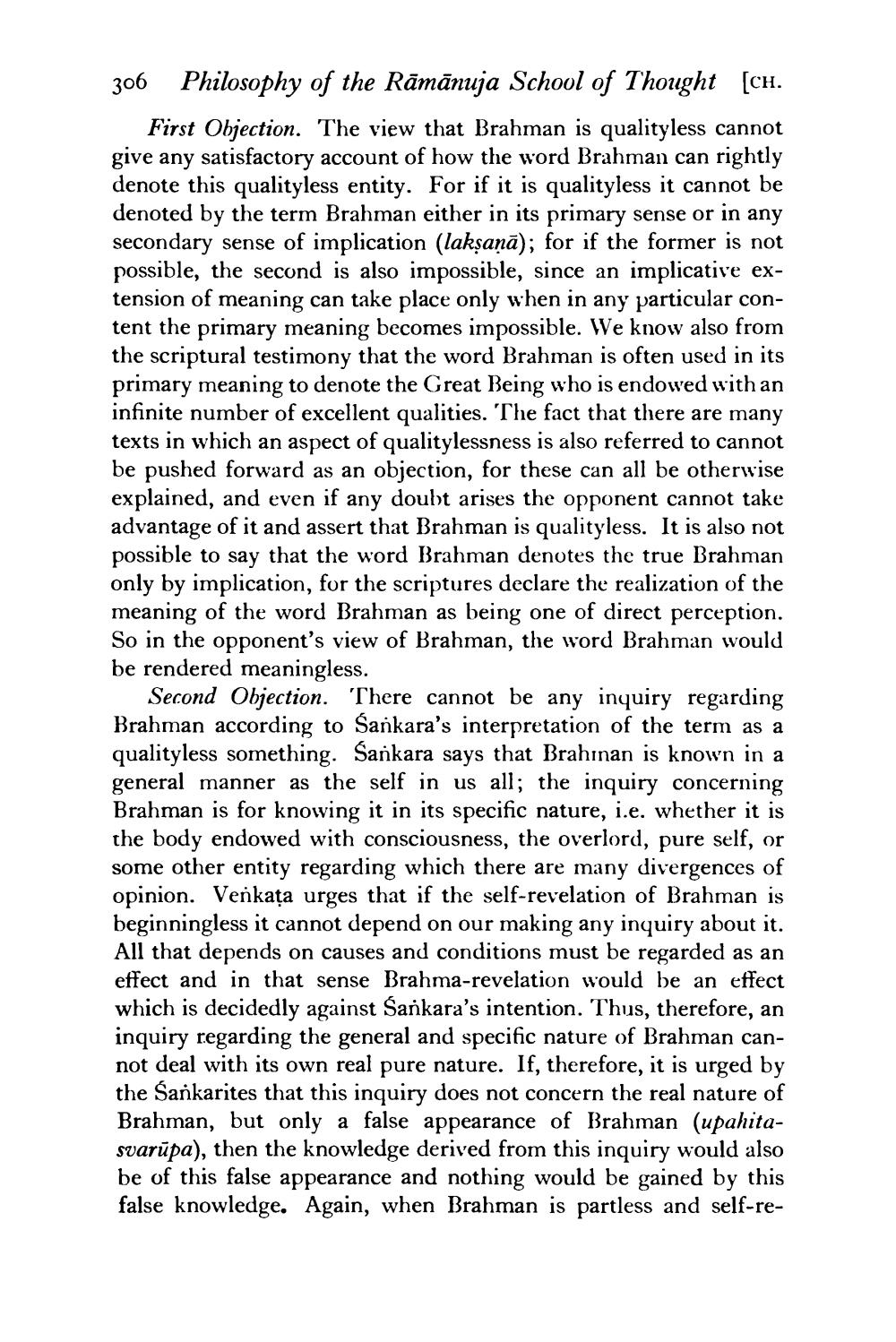________________
306 Philosophy of the Rāmānuja School of Thought [CH.
First Objection. The view that Brahman is qualityless cannot give any satisfactory account of how the word Brahman can rightly denote this qualityless entity. For if it is qualityless it cannot be denoted by the term Brahman either in its primary sense or in any secondary sense of implication (lakṣaṇā); for if the former is not possible, the second is also impossible, since an implicative extension of meaning can take place only when in any particular content the primary meaning becomes impossible. We know also from the scriptural testimony that the word Brahman is often used in its primary meaning to denote the Great Being who is endowed with an infinite number of excellent qualities. The fact that there are many texts in which an aspect of qualitylessness is also referred to cannot be pushed forward as an objection, for these can all be otherwise explained, and even if any doubt arises the opponent cannot take advantage of it and assert that Brahman is qualityless. It is also not possible to say that the word Brahman denotes the true Brahman only by implication, for the scriptures declare the realization of the meaning of the word Brahman as being one of direct perception. So in the opponent's view of Brahman, the word Brahman would be rendered meaningless.
Second Objection. There cannot be any inquiry regarding Brahman according to Sankara's interpretation of the term as a qualityless something. Sankara says that Brahınan is known in a general manner as the self in us all; the inquiry concerning Brahman is for knowing it in its specific nature, i.e. whether it is the body endowed with consciousness, the overlord, pure self, or some other entity regarding which there are many divergences of opinion. Venkata urges that if the self-revelation of Brahman is beginningless it cannot depend on our making any inquiry about it. All that depends on causes and conditions must be regarded as effect and in that sense Brahma-revelation would be an effect which is decidedly against Sankara's intention. Thus, therefore, an inquiry regarding the general and specific nature of Brahman cannot deal with its own real pure nature. If, therefore, it is urged by the Sankarites that this inquiry does not concern the real nature of Brahman, but only a false appearance of Brahman (upahitasvarūpa), then the knowledge derived from this inquiry would also be of this false appearance and nothing would be gained by this false knowledge. Again, when Brahman is partless and self-re




